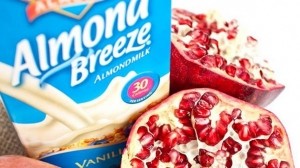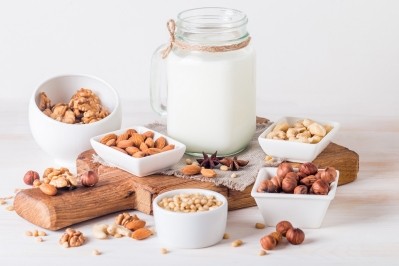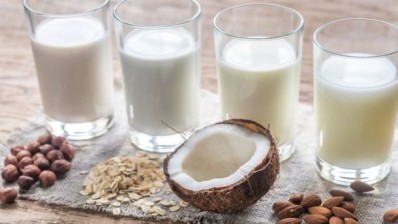Term ‘soymilk’ is not misleading, says judge in Trader’s Joe’s lawsuit

In a December 1 order dismissing these allegations (although he allowed other unrelated claims in the lawsuit to proceed), US district judge Vince Chhabria said no ‘reasonable consumer’ would confuse soy with dairy milk.
Meanwhile, the fact that there is a federal standard of identity for ‘milk’ [which limits it to lacteal secretions from cows] “does not categorically preclude a company from giving any food product a name that includes the word milk”, he argued.
“The standardization of milk simply means that a company cannot pass off a product as ‘milk’ if it does not meet the regulatory definition of milk. Trader Joe's has not, by calling its products ‘soymilk,’ attempted to pass off those products as the food that the FDA has standardized (that is, milk).”
He added: “The threshold question in this case… is whether the use of the word ‘soymilk" in the Trader Joe's products could conceivably violate the federal Food, Drug and Cosmetic Act. The answer to that question is no.”
Judge: ‘There is no conceivable justification for the assertions made in the FDA warning letters’

As for the plaintiff’s claim that consumers are being duped into buying something that purports to be as healthy as dairy milk, but lacks milk’s unique nutritional benefits, he said: “A reasonable consumer (indeed, even an unsophisticated consumer) would not assume that two distinct products have the same nutritional content; if the consumer cared about the nutritional content, she would consult the label.”
He also gave short shrift to FDA warning letters (click HERE to read one sent to LifeSoy) taking issue with the term ‘soymilk’, adding: “There is no conceivable justification for the assertions those letters make about the word ‘soymilk’ so they do not support a claim that products with ‘soymilk’ in their titles violate the federal statute.”
"The lack of enforcement by FDA of the long‐standing labeling provisions of various standards of identity for milk and dairy products and other pertinent federal labeling regulations has led to rampant consumer fraud." National Milk Producers Federation (from petition to FDA in 2010)
His comments echo those of fellow US district judge Samuel Conti, who threw out a similar case (3:13-cv-01953) vs WhiteWave Foods, noting that under the plaintiffs' logic, consumers might also "assume that 'flourless chocolate cake' contains flour or 'e-books' are made out of paper".
“The reasonable consumer (indeed, even the least sophisticated consumer) does not think soymilk comes from a cow.” US District Judge Vince Chhabria
NMPF: What’s the point of a standard of identity if it’s not enforced?
The National Milk Producers Federation (NMPF), however, which has been lobbying the FDA to take action to curb the use of plant ‘milk’ labeling for years, was not amused.
SVP communication, Chris Galen told FoodNavigator-USA that the NMPF was “disappointed that the judge didn’t give greater credence to the federal standard of identity for products such as milk, cheese and yogurt, which in order to use those terms, must be made from milk, not plant-based imitation sources, according to federal regulation.
“What’s more, some consumers do think that use of the term ‘milk’ on an imitator’s package means that the product has the same protein, vitamins, calcium and other minerals that real milk does. The imitators usually employ the same packaging, same form of merchandising (i.e. located in refrigerated cases next to cows’ milk), and same use patterns – e.g. with cereal.
"Since the product purports to be a similar product, the consumer would expect to find equivalence with all product attributes, including nutrition.”
“Many of these non‐dairy plant‐based beverages are little more than water and soluble carbohydrates, with little to no nutrient value…” Amy Gitson (plaintiff)
NMPF: FDA has not given plant 'milk' issue attention it deserves
Galen added: “From where we sit, the FDA has not given this issue the attention it deserves… The FDA did offer a perfunctory response acknowledging our most recent petition in 2010, but no promises of further action.”
He added: “Their point is essentially that enforcing alleged violations of standards of identity by the imitators is not a priority for which they have resources.”

As a result, he said, the NMPF has focused efforts on drawing attention to the “benefits of real dairy products, vs. imitators" via initiatives such as Real Seal.
Dr Greg Miller, chief science officer at the National Dairy Council, said the NDC doesn't engage in lobbying efforts, but agreed that there were “misconceptions among consumers”, adding: “It’s difficult to find foods that naturally provide the same nutritional package as one serving of a glass of milk.”
The FDA's position
Asked for clarification on the issue earlier this year, an FDA spokesman told us: “The standard of identity for ‘milk’ is in 21 CFR § 131.110 [the lacteal secretion, practically free from colostrum, obtained by the complete milking of one or more healthy cows]. The agency does not have a specific regulation that authorizes the use of the names you referenced (i.e., ‘almondmilk’, ‘soymilk’, ‘peanutmilk’, or ‘cashewmilk’). FDA’s regulations regarding common or usual names for food, including those names FDA has established by regulation, can be found in 21 CFR Part 102.”
Attorney: It seems early to ring the death knell for such litigation
So what do food law attorneys make of all this? Is the plant ‘milk’ question still a ‘live’ legal issue, or has judge Chhabria finally put this matter to bed?
Not according to Adam Fox, a partner at law firm Squire Patton Boggs, who notes that while some plaintiffs’ lawyers "may no doubt be discouraged" from pursuing more plant milk cases after reading Chhabria's comments, "it seems early to ring the death knell for such litigation."
"No abundance of district court opinions can conclusively resolve an issue," said Fox.
"More specific to these claims, the risk of litigation remains...and it would be imprudent to assume this is the last time we will see such claims or new ones that have not yet been tested in the courts [none of these cases has yet gone to trial]."
He added: "The makers of milk substitutes should probably be more focused on following ongoing scientific research than assuming their problems have come to an end. Doing so will help them better protect against future litigation threats, avoid liability and exposure to regulatory intervention when those threats arise, and build their brand equity and credibility with consumers."
*The case is: Amy Gitson et al v Trader Joe’s Company, which was filed in the Northern District of California in 2013: 13-cv-01333-VC






















